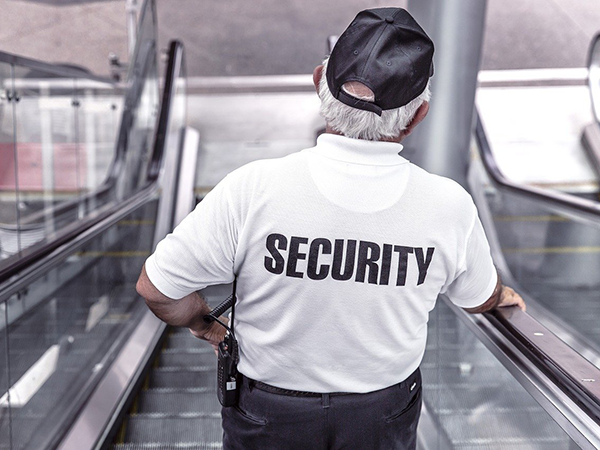Welcome to another installment of Dr. Lou’s View. I’m Dr. Lou Marciani, the director and co-founder of the Innovation Institute for Fan Experience. In this section of our newsletter, I share my thoughts on a key issue facing the sports and entertainment industry. Today, we’re going to talk about event and venue security, my primary area of expertise. This edition specifically focuses on event security training.
The United Kingdom government has just released Volume I of its inquiry into the Manchester Arena bombing. The report addresses the security arrangements at the Ariana Grande concert. Its investigative work reveals major security failures – particularly in the area of training security personnel – that could have potentially prevented this tragedy.
As the report shows, this attack stemmed from a confluence of miscues and missed opportunities and is not one person’s own fault. Still, though, I think that the global sports and entertainment industry can learn from this report, particularly as mass spectator events return.
Online Training
The report finds that security training should take place primarily in-person. However, the report cites one case in which training was fully online and another in which proctors gave trainees exam answers (3.26).
Additionally, the inquiry states that online training could potentially allow trainees to skip or not pay attention to modules (6.98).
These reports show the importance of communicating with trainees and ensuring they reach the desired learning outcomes.
Indeed, one of the two security staffers interviewed in the public inquiry concedes that he did not watch any videos as part of his training and could have increased his preparedness by properly studying (6.102).
The investigation also reveals that neither security guard had completed online training on the importance of being vigilant and raising concerns (6.118)
These reports are troubling because security requires good situational awareness of all activities within the security perimeter.
Thus, it is clear that there are legitimate shortcomings to online training. Chief among those shortcomings is that it is difficult to ensure trainees are paying attention – and learning.
In-person learning allows for the best exchange of information, regular interaction, and assurance that the training is working. However, trainers can make online learning more effective and accountable.
For instance, the Federal Aviation Administration is using online proctoring service Proctorio to commission tests for recreational drone pilots, per Yahoo. The software uses artificial intelligence to monitor testers’ behavior using their webcams and microphones, alerting proctors to any suspicious actions.
However, College Post points out that some universities – and even United States senators – have concerns about the service’s privacy policy and overall effectiveness. (College Post provides news and analysis on higher education in the U.S.) So, while technology is evolving, there is not a perfect solution to online testing and training.

Lack of Follow-Up
Whether security personnel are trained online or in-person, their training must be reinforced. The inquiry shows that was not the case in Manchester.
Follow-up training and skill checkups are online and voluntary, per the report (3.28). Trainers also keep online training modules open for viewing if trainees need a refresher, and they even updated their curriculum after the 2015 terrorist attack in Paris, but they did not make that training mandatory (6.104).
The inquiry does find that trainees received half a day of in-person training. However, it states that there is no clear evidence trainers checked for requisite knowledge from online or in-person instruction (6.107).
Trainers must repeatedly reinforce critical tasks through continued education and knowledge checks.
These actions all show unfortunate missed opportunities as the result of lack of follow-through.
I apply two simple rules to training:
- What is learned first is remembered best.
- What is repeated most is remembered best.
So, training should begin by addressing the event’s biggest vulnerability. That can be anything from a rowdy crowd to a heightened national or local risk of terrorism. Just make sure to reinforce it through training. Identify tasks to reinforce and how – and how often – you will need to do so.
Also, take advantage of routine opportunities to reinforce key security procedures. For instance, the mass exit from a venue after a sporting event or concert provides built-in training for an emergency evacuation.
Position personnel accordingly and practice all necessary communication steps and procedures. Then, if the “real thing” occurs, event staff can adopt a sense of urgency without being panicked because they have the basics down.
Taking advantage of these opportunities for real-life practice runs is key because online training simply cannot reinforce core competencies like actual practice and situational training can.

Lack of Preparation
It is also important to prepare for every possible scenario – normal and emergency – a mass spectator event like this concert. The report cites missed opportunities because of training inadequacies, and the sequence of events reveals how unprepared security personnel were.
To begin, the report finds that the perpetrator was overdressed and weighted down by a backpack, which, while he was near a major transportation hub, still should have tipped off a properly trained and situationally aware staff (1.19)
Proper training and following of pre-event security checks should have also alerted event staff that the perpetrator was hiding out in a “blind spot” not visible to the security camera system, the report says (1.31, 43).
The inquiry also finds that CCTV operators should have had government licenses and training (6.83-84).
Additionally, the report says that one of the private firms used underaged and unlicensed bag checkers (3.130). Now, many venues use clear bag or no bag policies. However, venues that still allow bags must employ staff capable of identifying security risks.
Finally, the investigation reveals that once a member of the public noticed the perpetrator outside the arena, police were not at the scene and security staff were not persistent or confident enough in escalating their concerns (1.48-57).
Also, proper training in a rarely used radio function could have helped them cut through chatter to send an emergency message, the inquiry finds (6.129, 134).
The report is careful in many cases to note that no one training mishap enabled this tragedy. Still, additional training provides additional failsafes. Ultimately, each of these events shows how lack of preparation in multiple areas can compound into a massive problem.

“It Won’t Happen Here”
These incidents of improper training and preparation each represent a piece of the hard work necessary to prevent tragic events. Often, it can be tempting to slip into a mindset of “it won’t happen here.”
But, terrorist attacks or crowd incidents are so statistically rare precisely because of the amount of work it takes to prevent them. So, do not let this rarity lull you into a false sense of security. Instead, let it spur you on to keep up the good work. If the pandemic has taught us anything, it is that low-probability, high-consequence incidents do happen.
Indeed, at the time of the attack, the U.K. government rated the terrorism risk as severe (6.10). Yet, that risk had been in place for over two years, which the inquiry concludes numbed people to the risk (8.7, 12).
Continual reminders of risks and policies to avoid dangers can help security personnel appropriately appreciate risk – and their role in lowering it.
I recommend that managers and supervisors review key security practices with their teams in-person before each event. Even a few minutes of sharing threat information and good practices can help your security and event staff be better prepared.
This culture of preparedness and continuing education can help make sure that it really “won’t happen here.”
Thanks for reading,

Please feel free to share this article and our newsletter with others. If you have a suggestion for our next installment, email me at [email protected]. I’d love to hear from you, and I hope you’ll check out the rest of our newsletter and join me here again for the next edition of Dr. Lou’s View. If you like what you see, consider subscribing to make sure you get our latest industry insights.
Starting in August, some of our content will become subscriber-exclusive. This move will help us continue to grow and give our subscribers more insider advice, insights, and networking opportunities. Our newsletter, the IIFXtra, will send you a mix of free and exclusive content as soon as we publish it. Sign up for the IIFXtra below and learn more about subscribing here.
[mailmunch-form id=”1036259″]

